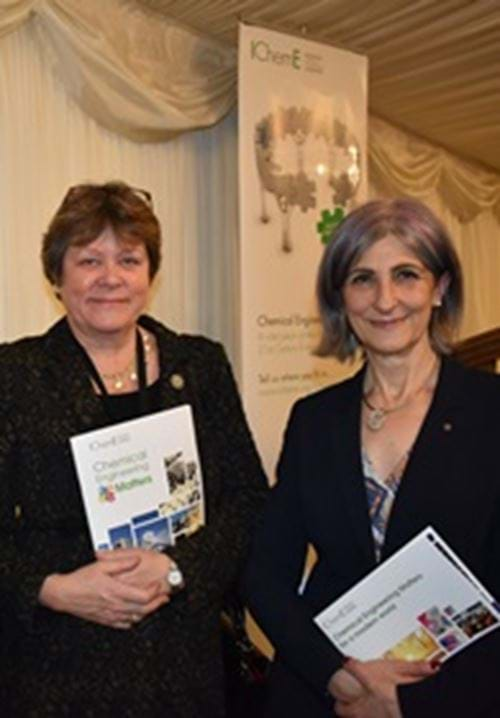Chemical engineering research makes an impact in Parliament
16th December 2016

Ten UK chemical engineering university departments have been selected by the Institution of Chemical Engineers (IChemE) for research that has had a positive impact on today’s modern world. Their projects were showcased at an event hosted by the Baroness Brown of Cambridge, and IChemE’s UK Research Committee, held in the Houses of Parliament, UK.
Chemical Engineering Matters for a Modern World welcomed over 100 specially invited guests from the academic and engineering community, as well as policy-makers, opinion-formers and Members of Parliament.
Baroness Brown of Cambridge, Professor Dame Julia King, was keen to express the importance of academics collaborating with industry:
“The breadth of engineering work undertaken in the UK always amazes me. Engineers work across all sectors and disciplines, from finding energy solutions for climate change to producing lifesaving medicines. It is crucial that the engineering community communicates this effectively with Parliament to ensure engineering expertise and knowledge is used to make evidence based policy decisions. Research and its impact is a vital driver of the UK economy and engineering is essential to the success of the UK economy.”
King was previously Vice-Chancellor at Aston University, Birmingham, UK, has held a number of senior positions at Rolls-Royce, and was Principal of Engineering at Imperial College London.
Research projects from chemical and biochemical engineering departments at University of Birmingham, University College London, Heriot-Watt, Queen’s University Belfast, Imperial College London, University of Manchester, University of Cambridge, University of Leeds, University of Surrey, and University of Strathclyde, were all chosen based on how impactful their work was in the ‘real world’. This was based on a definition from the Research Excellency Framework (REF) 2014, which describes ‘impact’ as having a positive effect on areas beyond academia.
One of the projects, from the Department of Chemical Engineering, University of Cambridge, involved the research and development of glucose testing strips for those suffering with diabetes. The spin-out company, AgaMatrix, now supplies over 1 million test strips per month to the NHS and has designed a smartphone app linked to the diagnostic device. The research has changed the lives of people living with diabetes – estimated at around 347 million worldwide.
Dr Jon-Paul Sherlock, Director of Intelligent Pharmaceuticals at AstraZeneca and IChemE’s Technical Vice President, who also attended the event, said:
“I am delighted to see the fantastic range of case studies that have been chosen to promote IChemE’s message of Chemical Engineering Matters. To see projects that have made a significant impact in the areas of water, energy, food and wellbeing sends a strong message about diversification in our profession, and how chemical engineering principles can make a difference to a wide range of industries.”
Other case studies selected by the Committee included a tool developed by chemical engineers at University of Manchester, which measures environmental impact for an organisation across the whole supply chain. The CCaLC software is used in more than 80 countries, and has generated an estimated £450 million in climate change mitigation gains.
IChemE’s UK Research Committee Chair, Professor Raffaella Ocone, who was instrumental in selecting the final case studies said:
“The work presented here today goes beyond chemical engineering. It is an opportunity to look at the scope of knowledge and competency required of chemical engineers as practitioners in a social context. These case studies show that chemical engineering draws on many different experiences and complement technical competence with a wider socio-economic perspective.”
The case studies were launched on Thursday 15 December, at an event held in the Terrace Pavilion, House of Commons, in London, UK.